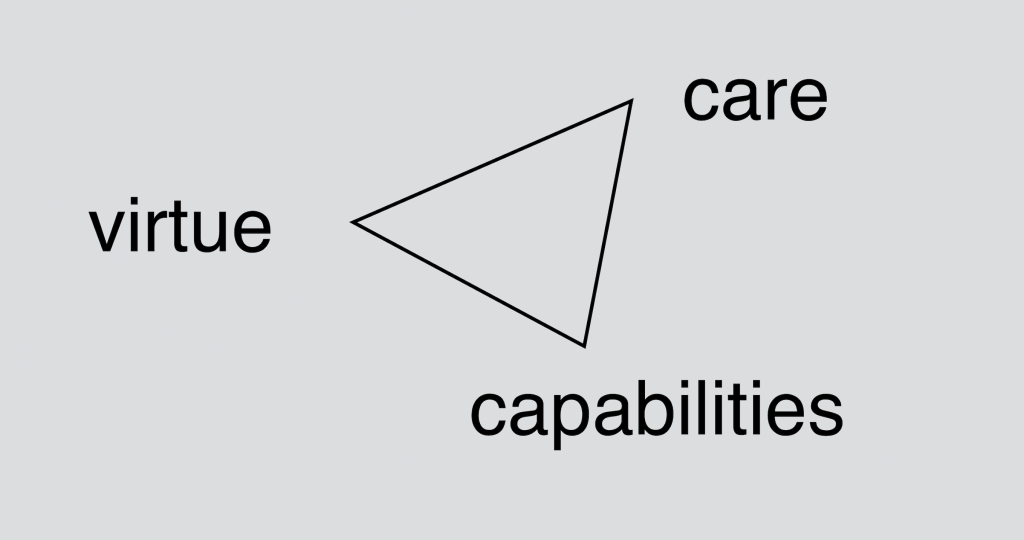ThingsCon 2019, Rotterdam: Being a Developer, Managing Data
On December 12th, VIRT-EU members and partners attended ThingsCon 2019 at Het Nieuwe Instituut to facilitate a workshop discussing ethical issues faced by developers and designers working with technologies. It starts with a ‘moral simulation’ – a way to ask the audience to imagine themselves as developers working in a company called WearWell. Much like our session at Mozilla Festival, participants were asked to make a fundamental design decision about a wristband for employers help their workers manage their wellbeing. This time, we documented the whole workshop where conversations ranged from business decisions to questions of justice and freedom. Read on, or watch the video!
You’re part of the design team – what do you do?
The decisions developers and designers had to make were not that simple. Technologies change relationships and the way we live, but their design is also a business where companies have to survive among many economic, regulatory and social constraints. The question is, how do we deal with these dilemmas? And how do we make these decisions more manageable?
Our three-year project culminated in the development of tools that we hope developers can use to guide their ethical decisions. But the biggest achievement of our project has been to find frameworks to help convene conversations about ethics.
“Why ethics? It means something different for each of us, so…?”
That is a good question. Ethics has a long history and besides, who are we to say what is right and what is wrong? The focus here is embracing this complexity in the design process. Much thinking about ethics and technologies has focused on considering consequences of technical decisions and trying to mitigate these. Trouble is, consequences are difficult to predict in a situation where the technical innovation is intended to change the way we live. Rather than trying to reduce uncertainty by focusing on consequentialist thinking, we instead have been trying to find ways to embrace uncertainty productively. Thus our workshops are an avenue for us to intervene in the complex decision-making processes designers have to go through when creating technologies. To do this we developed a practical approach to ethics that leverages three different ethical perspectives:
 Designers, developers, technology innovators, no matter who you are you have your principles and your North Stars as it were. These are values that are important to you, lines in the sand that you do not want to cross. These values and lines come into conflict sometimes as people struggle to create technology that does good in the world but at the same time to ensure that their companies survive and that they can put food on the table. We ideals, moral certitudes, we care and many of us want to do good. Our framework acknowledges these desires but also pays attention to the fact that we cannot care about everything. What we care about is always a choice and there are limits to what we can care about. These limits depend on what we are actually capable of doing, both as individuals and as a company. Ethics comes into play when making decisions and it is important to be aware of your ideals and values, the compromises you have to make and the limits of caring that are delineated by your various capacities.
Designers, developers, technology innovators, no matter who you are you have your principles and your North Stars as it were. These are values that are important to you, lines in the sand that you do not want to cross. These values and lines come into conflict sometimes as people struggle to create technology that does good in the world but at the same time to ensure that their companies survive and that they can put food on the table. We ideals, moral certitudes, we care and many of us want to do good. Our framework acknowledges these desires but also pays attention to the fact that we cannot care about everything. What we care about is always a choice and there are limits to what we can care about. These limits depend on what we are actually capable of doing, both as individuals and as a company. Ethics comes into play when making decisions and it is important to be aware of your ideals and values, the compromises you have to make and the limits of caring that are delineated by your various capacities.
We have described this framework in a prior post here in detail. You can also download our ethics primer to learn more about this framework and how to apply it.



